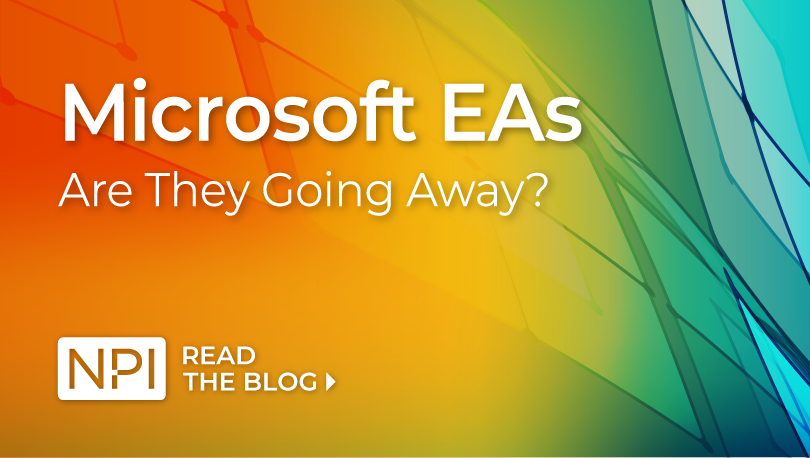BLOG
Microsoft EAs: Are They Going Away?
Microsoft’s latest move to phase out Enterprise Agreements (EA) for certain Level A customers (500–2,399 users/devices) has left many wondering: Are EAs going away altogether?
Like many things related to Microsoft enterprise buying, the answer is a little murky. Below is a quick overview of what we know, what we’re seeing now, and where we see things heading. If you want a deeper dive, check out our bulletin on the topic.
What’s Changing?
Starting January 1, 2025, Microsoft will stop renewing a small percentage of Cloud EAs in direct markets. The exact definition of “Cloud EA” remains unclear, but it likely refers to EAs that include only Online Services and Azure excluding on-premises licenses, special amendments, or discounts.
Additionally, Microsoft is encouraging Level A customers to transition to the Microsoft Customer Agreement for Enterprise (MCA-E) or the Cloud Solution Provider (CSP) program. Unlike EAs, MCA-E eliminates price bands, Software Assurance benefits, and renewal discounts.
This video summarizes the changes and challenges that Microsoft’s largest enterprise customers should be aware of.
Will Large Enterprises Be Forced Off EAs in 2025?
So far, we haven’t seen Microsoft force large enterprise customers off their EAs. However, reports indicate that some resellers have been instructed not to provide EA renewal quotes to Level A customers, instead directing them toward alternative licensing models.
While a full EA sunset in 2025 seems unlikely, Microsoft has built flexibility into its agreements that could allow for major changes. If the vendor starts enforcing clauses requiring customers to enter new agreements upon renewal, this could spark contract disputes and significant cost increases.
What EA Customers Need to Watch For
Pricing & Discounts Will Change: Some customers may see lower costs under MCA-E, especially those with fluctuating licensing needs. Others may lose valuable EA discounts, particularly for on-premises products with Software Assurance (SA).
Licensing Complexity May Increase: MCA-E simplifies contracts but removes key licensing benefits such as SA renewals for Windows Server and SQL Server. Customers may need to combine multiple licensing programs to replicate their EA benefits, adding complexity and costs. Microsoft 365 customers could face challenges, particularly with Teams licensing, which may require a separate purchase.
Contract & Purchase Processes Will Be Different: MCA-E introduces shorter contracts (9 pages vs. 30+ pages for EA) and automatic renewals. Customers might need to manage multiple resellers to maintain similar coverage, potentially leading to higher costs.
What Should Enterprise Customers Do?
While Microsoft’s push to phase out EAs for Level A customers doesn’t yet impact larger enterprises, it could be a sign of bigger changes ahead. Organizations relying on EAs must now prepare for what’s next. Customers should:
- Closely monitor Microsoft’s licensing policies and how they evolve.
- Evaluate alternative licensing models to understand potential cost impacts.
- Engage with licensing experts to ensure they maintain the best possible terms.
We’ll be tracking these changes closely. To stay informed, register for one of our upcoming Microsoft Licensing webinars or contact us!


